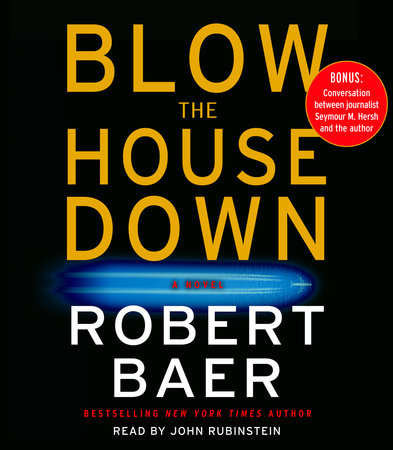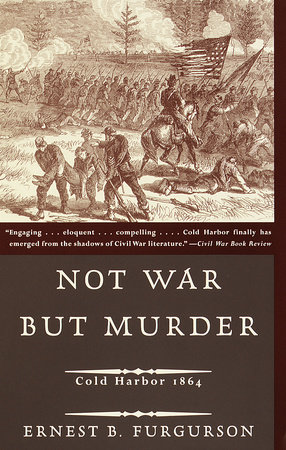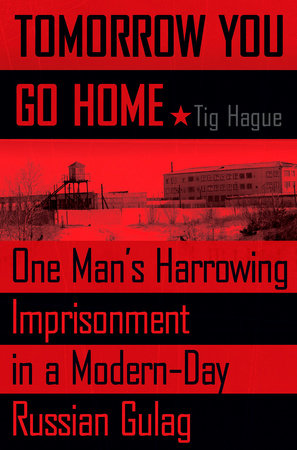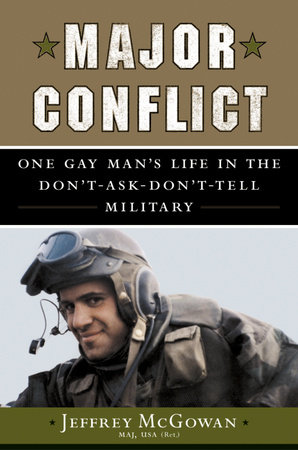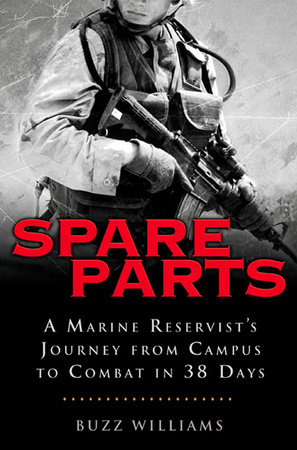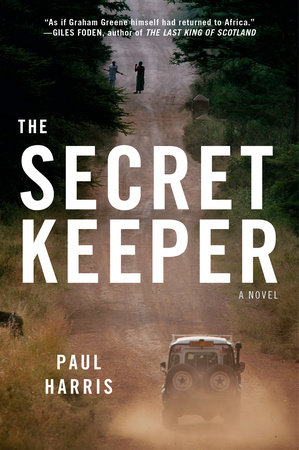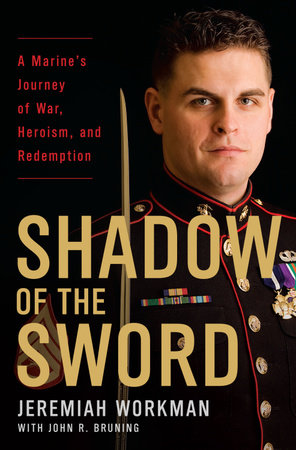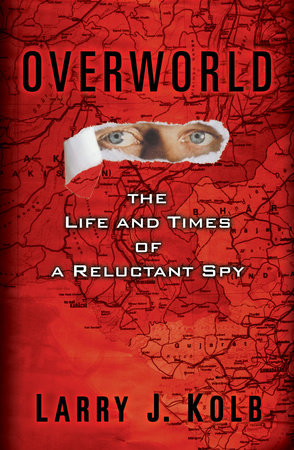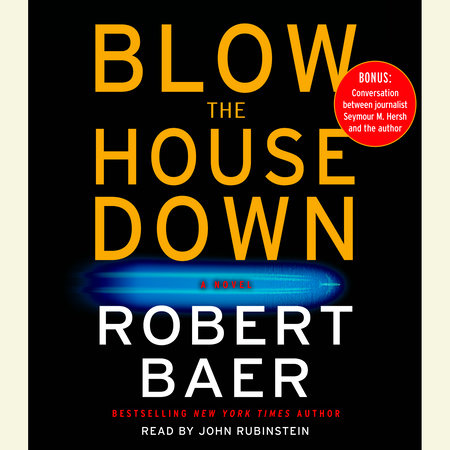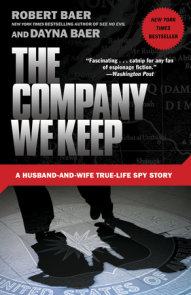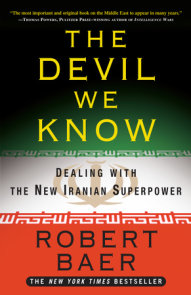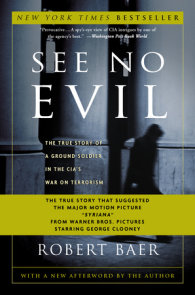Author Q&A
A Conversation Between Award-Winning Journalist Seymour M. Hersh and Robert Baer Regarding Blow the House Down
Seymour M. Hersh: On one level this novel is just a fun read. It’s fast, it’s quick, it has a lot of detail we don’t know. But on another level it raises fascinating questions.
One question, of course, relates to the use of real names. Why the decision to use Buckley’s name? Are you worried some people might be offended? Buckley’s family? You’re obviously using some real people and that’s interesting. Why did you decide to do that?
Robert Baer: Well, it’s like Primary Colors. There’s a lot more truth in this book than is apparent. One truth is that the guy involved in kidnapping Buckley may be the president of Iran. He was a member of IRGC–the same people who harbored bin Ladin’s people, the suicide bombers who, according to the 9/11 Commission, crossed Iran to Afghanistan with the assistance of the Iranian government.
S.M.H.: But above and beyond that, you used those names because you’re trying to create verisimilitude, is that it?
R.B.: I’m trying to provide an alternative scenario, which may be true and which the 9/11 Commission could never go into that deep.
S.M.H.: Well, we don’t want to give away the end of the book, so we can’t talk about what the story leads up to, but the bottom line is, when you’re using the name of real-life FBI agent John O’Neill and others, do you worry about some people thinking, you know, that you’ve crossed a line? E. L. Doctorow used real names for historical purposes in a book set a long time ago, but this is current and today.
R.B.: Well, most of the real-life people I used come out heroic. I mean, John Millis, John O’Neill–I’m not libeling them. But it could be that some people are going to find it offensive that I have drawn some material from 9/11 and the real people who died tragically.
S.M.H.: Let me say again, on one level the book is a good read . . . gripping. On another level, for somebody like me, I go wham bam. When you don’t use real names, you’re mentioning a lot of incidents inside the CIA–very much inside baseball. There are some people you describe whom people you served with in the intelligence community, and perhaps even in Congress, will recognize–and these are not flattering stories. In other words, you’re also telling some of the internal truth and you will piss off a lot of people. I assume you’re a big enough boy to know that.
R.B.: Yeah, I’m getting at a fictional truth. You already know who some of these people are by the description.
S.M.H.: One of the most interesting things to me is that at one level you’re writing for a mass audience, and at another you’re writing for a very small group of people. Sort of dropping a marker to say, “Look, some of us have memories and some of us know what could have been done that wasn’t done.” Is that the intent?
R.B.: I did it intentionally. I wrote it close to the bone. Even these people in the middle of the book, the Arabs and the Iranians, are real people.
They had something to say, and that truth is out there if you’re willing to go out and listen to them or look at the intelligence objectively. If you don’t, you’re never going to know what happened on 9/11.
S.M.H.: And yet some of the things that happened are really fictional, obviously.
R.B.: It’s fiction at the end of the day. But one thing I come back to is the Iranian connection. How did the 9/11 suicide bombers get across Iran? And no one’s ever answered the question why the two San Diego suicide bombers were never followed up on. Why no one was fired. Why the interrogation of one of the suicide bombers transiting Dubai was never passed on to the FBI. We have not answered those questions because they’re inconvenient or make us uncomfortable.
S.M.H.: The title of your novel, Blow the House Down, suggests one of things you’re also trying to do is unravel the mystery. Are you seriously hoping to get enough people talking so that perhaps something more concrete can be done about what went wrong before 9/11?
R.B.: What I really want to do is bring out emotionally that we haven’t answered these questions, and until we start telling the truth to each other and to ourselves we’re not going to figure out what happened on 9/11 or prevent the next tragedy.
S.M.H.: What about some of the marginal players you describe–for example your Russian buddy who can get a passport from anywhere–are they real?
R.B.: Real people.
S.M.H.: You also describe an agent, an operative for whom the normal, the commonplace, legal rights and wrongs are mere annoyances. You know, if you have to get into someplace you buy the drill and you get in.
R.B.: That’s the way you get what you’re looking for.
S.M.H.: This is also based on reality.
R.B.: Breaking and entering–we used to do it every day in Europe, Asia, everywhere. They don’t do it anymore. And you got to to get to the paper. You gotta get to the codes, however you get them. That’s at another level–this is how espionage used to be done and it’s not anymore.
S.M.H.: You know, it’s interesting because you remind me of my learning curve as I was dealing with somebody in the military intelligence service–a guy who had a lot of serious foreign responsibilities. The marriage of one of his buddies broke up, and this guy wired and photographed the buddy’s house. I mean he had pictures and phone intercepts of a house in America. I was stunned. I had no idea that guys like this would so casually cross the line.
R.B.: Yeah, or create a false paper trail to get somebody indicted. Get the IRS or even the FBI after them.
S.M.H.: Without getting too much into the plot stuff, that’s one of the major elements of your novel. You’re describing how you can get into a banking system, have it do things, and then rat out the person to the IRS. I assume when you were in the clandestine service these were things that were not unknown.
R.B.: It’s all doable. You can get into Swiss transfers. The Israelis do it all the time and create false transfers.
S.M.H.: So what you’ve really written is a novel which, I’ll say it again, discloses a reality that most Americans don’t know much about. You think if you had told some of these stories as nonfiction–well, you wouldn’t have because it’s not your intention to harm potential future activities–but you simply wouldn’t have gotten it cleared anyway. Am I right?
R.B.: Well, I had to show this book to the Agency, and they cleared it because it’s fictional. But if I had come out with specific cases they would have never cleared it. It would have been in Publications Review Board forever.
S.M.H.: Are you worried about retribution from some of the real-life individuals who are not named but who are described? There are going to be some very unhappy people inside the Agency. The public won’t know who you’re talking about, but a very small group will know you’re telling some stories about individuals who’ve committed heinous acts and lied about it. You’re outing them in a way.
R.B.: Absolutely. You know, you do have to tell the truth in fiction even if it is fiction. The only way I can write something like this is to model it on real people.
S.M.H.: I’ve got to tell you: Your protagonist is really strong. He can carry a lot of the book. I think it’s good to put the reviewers and the audience on notice, though, as we are now, that this book is a huge double entendre in effect. This is a lot more than it seems to be. There are some books that are less than they seem to be. This one’s a lot more. This is not only a mystery story, but it’s one that has an overlay of an untouchable reality. And that’s why it’s really fascinating.
R.B.: You could never write it as nonfiction and not get sued. I don’t know, it works. Plus, I had great editors.
S.M.H.: Or prosecutors.
R.B.: Or prosecutors. You know, I had editors who cut out the clichés and other problems–that was indispensable.
S.M.H.: When I first began to write for The New Yorker, William Shawn was the editor–the late William Shawn, the famous editor. I remember whenever he found a cliché in one of my pieces, he’d just write in the margin, “Please use words, Mr. Hersh.”
R.B.: [Laughs] That was nicer than my wife, who would just yell, “This is crap,” and out it would come.
S.M.H.: Anyway…one last question for me concerns your main villain. The very wealthy villain who runs behind the scenes with his money–is he based on somebody who’s real?
R.B.: That’s fictionalized. He’s a composite.
S.M.H.: I’m so glad to hear that there isn’t somebody quite that evil in the world.
R.B.: You need him for fiction. You need to put flesh on evil.
S.M.H.: It occurs to me to ask one final thing. Can I assume there were periods when you were bouncing around just like your character, only you were inside–you were bouncing around the Middle East, right?
R.B.: Yes.
S.M.H.: And often without any direct approval from higher authorities who never knew what the hell you were doing.
R.B.: That’s the only way you could do it. You just had to follow the leads wherever they went. You didn’t have time to go back to headquarters and ask for permission. You just had to go do it.
S.M.H.: One of your bosses, one of the chiefs you worked for, told me, “We never knew what the hell he was doing.”
R.B.: [Laughs]
